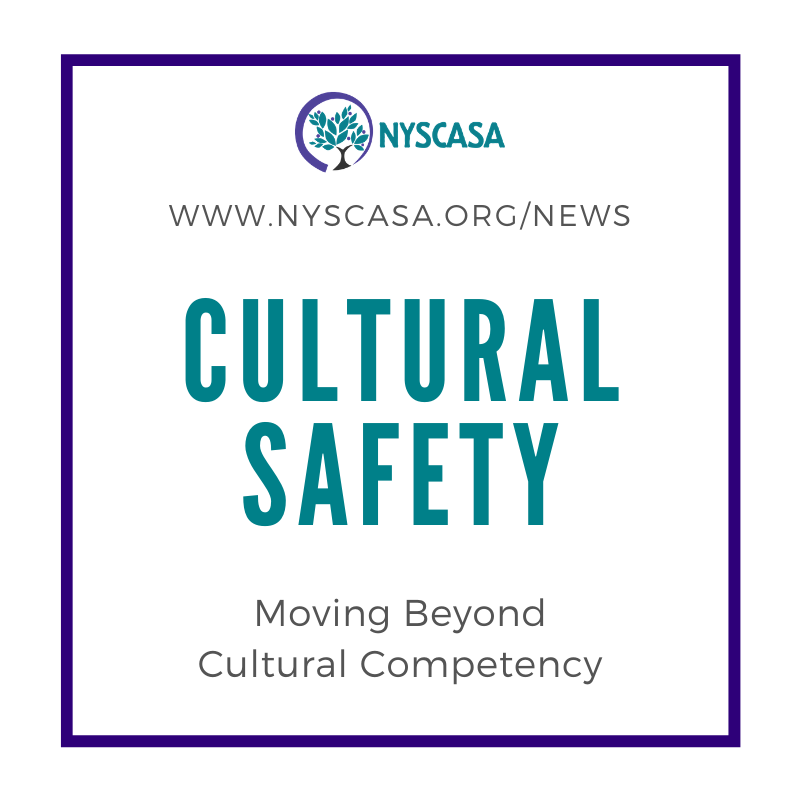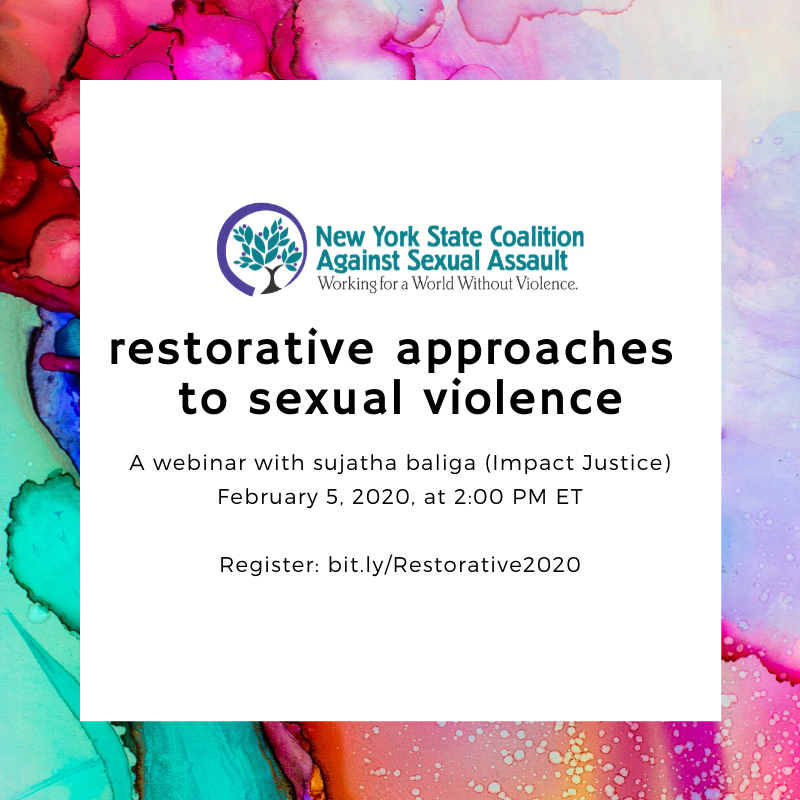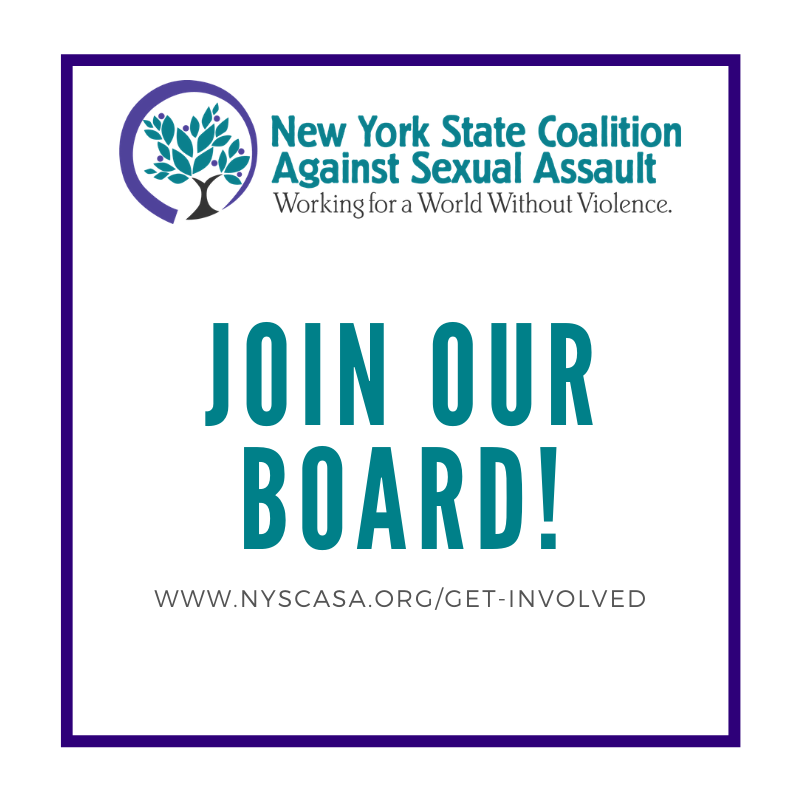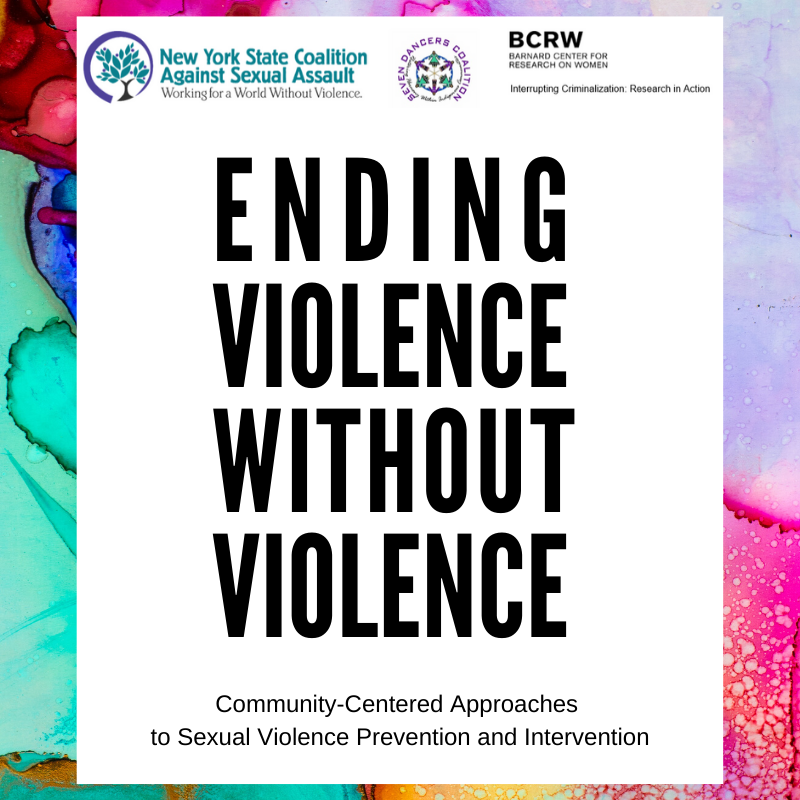23 Jan NYSCASA Monthly Digest – February 2020
Do you have news for NYSCASA to share in our next digest? Email submissions with “Newsletter” in the subject line to Chelsea Miller, Communications Director, at cmiller@nyscasa.org.
Coalition News
Seeking Candidates for NYSCASA Board of Directors
NYSCASA is seeking candidates for its Board of Directors, including one or two representatives from member rape crisis programs.
We are interested in candidates from all regions of New York State who have knowledge and skills in: nonprofit management; organizational planning; fund raising; finance; personnel management; legal matters; or public relations. We are looking for candidates who are prepared to: raise funds; support the executive director; engage in Board and organizational development, including long-term planning; ensure the agency’s legal and ethical integrity and maintain accountability; and donate to the agency.
For more information or to apply, please contact Sam Mitchell at smitchell@nyscasa.org or 518-482-4222 x311.
Coming Soon: PREA Portal
NYSCASA is pleased to offer an online portal for PREA advocates in New York State to facilitate collaborating and sharing resources. The PREA Portal is under construction. Stay tuned for more information! If you have ideas or questions, please contact E Bjorkman at ebjorkman@nyscasa.org.
 Cultural Safety: Moving Beyond Cultural Competency
Cultural Safety: Moving Beyond Cultural Competency
In 2019, NYSCASA staff had the privilege to attend a two-day training on cultural safety, presented by Seven Dancers Coalition in Akwesasne, also known as the St. Regis Mohawk Reservation. Read staff reflections on our blog: nyscasa.org/cultural-safety
Ending Solitary Confinement Is Survivor Justice
On January 21, NYSCASA staff joined over 800 people at the New York State Capitol for HALT Solitary Advocacy Day, organized by the New York Campaign for Alternatives to Isolated Confinement (NYCAIC). The campaign calls on lawmakers to pass the Humane Alternatives to Long-Term (HALT) Solitary Confinement Act (S.1623/A.2500) to end prolonged solitary confinement in New York State.
Solitary confinement is a survivor justice issue. “Protective custody” or “segregated housing,” which uses the same cells as solitary confinement, is often used to allegedly ‘protect’ incarcerated people who report sexual abuse or assault or may be vulnerable to victimization during their incarceration. The federal Prison Rape Elimination Act (PREA) standards recommend against using “protective custody” or “‘involuntarily’ segregated housing” for this purpose.
NYSCASA Joins Coalition Calling for Release of Incarcerated Elders
In October, NYSCASA co-signed a letter, alongside several victim/survivor support organizations, urging lawmakers to pass legislation that would allow for the release of incarcerated people who are age 55 or older and have served more than 15 years in prison. The measure would allow the Parole Board to determine whether an older applicant is suitable for release. Read the full letter here.
- Gothamist: Will Albany Give Older NY Prisoners a Chance at Freedom?
- Spectrum: Groups Push for State Law Allowing Release of Older Prison Inmates
Upcoming Events
Webinar Series: Ending Violence Without Violence
NYSCASA is pleased to announce our new webinar series, Ending Violence Without Violence, which will serve as lead-up programming for our conference of the same name (see below). The series will introduce participants to the core principles of Restorative Justice, Transformative Justice, Community Accountability, and other community-centered approaches to violence prevention and response.
Participants will develop a shared analysis of interpersonal violence—specifically sexual violence—and a shared understanding of the importance of community-based approaches to sexual violence prevention and intervention. The webinar series will underscore the importance of building communities that can prevent sexual violence, respond to harm, and heal trauma.
 February 5: Restorative Approaches to Sexual Violence
February 5: Restorative Approaches to Sexual Violence
This webinar will introduce participants to the core principles of restorative justice. Participants will learn about how restorative practices can be used to address sexual violence. This session will also address concerns and challenges to implementing restorative justice practices. Presenter: sujatha baliga (Impact Justice).
Register here: bit.ly/Restorative2020
February 19: Transformative Approaches to Sexual Violence
This webinar will introduce participants to the core principles of transformative justice and community accountability and how these frameworks can be used to address sexual violence. Presenters: Stas Schmiedt and A. Lea Roth (Spring Up).
Register here: bit.ly/Transformative2020
Ending Violence Without Violence Conference (Syracuse, NY)
NYSCASA is thrilled to announce that we are co-creating a conference to be held in 2020 with Seven Dancers Coalition, the Indigenous anti-violence coalition in New York State and Haudenosaunee Country, and Interrupting Criminalization: Research in Action, a new project led by Mariame Kaba and Andrea Ritchie at the Barnard Center for Research on Women. The 2020 Sexual Assault Prevention and Intervention Conference will be held in Syracuse, NY, on June 4–6, 2020, with a pre-conference institute on June 3.
This conference will provide a space for survivors, advocates, counselors, victim assistance programs, allied organizations, and community members across New York State to develop the knowledge, skills, and courage to implement community-centered practices to prevent and respond to harm and sexual violence.
Speakers and registration information to be announced.
Sign up to receive updates about the 2020 conference here: bit.ly/NYSCASA2020
Webinars from Ally Organizations
- February 4: Protecting Body Sovereignty: Eliminating the Avoidance and Delay of Healthcare for Survivors of Domestic Violence and Sexual Assault
- February 18: The Abuse of Girls, Women and Gender Non-Conforming People in OBGYN and Prenatal Care: Cross-Sectoral Work and Coordinated Community Response in Prevention and Intervention
- February 19: Enhancing Campus Sexual Assault Prevention Efforts through Situational Interventions
- February 27: VAWA Confidentiality: Empowering Survivors and Protecting Information
- March 3: When the Body Speaks: Somatic Language Across the Continuum of Sexual and Reproductive Violations
- March 4: Building Your Trainer Toolbox, Part 1: Using and Citing Research
- March 17: Interrupting Obstetrics Violence in Labor and Delivery: Why It Should Matter to Gender Violence Advocates
- March 31: Ending Maternal Mortality: Implications for Policy, Medical Practice and Culture Change
- May 6: Building Your Trainer Toolbox, Part 2: Training Materials and Professional Tools
Sexual Violence in the News
- Politico: Sexual Harassment Working Group reveals new layer of anti-harassment reforms
- CBS6: Cuomo’s 2020 State of the State Proposal: Closing rape intoxication loophole
- Times Union: Sexual assault reports at New York colleges result in few investigations, sanctions
- The New York Times: ‘I Want to Be Heard’: Adult sex-abuse victims demand new rights
- Buffalo News: Child Victims Act plaintiffs who want anonymity win a victory in court
- Times Union: Bill would give survivors another year to file Child Victims Act claims
- ABC News: Why some sexual assault victims continue relationships with assailants
- Vox: The stakes of Harvey Weinstein’s trial, explained
- CBS News: Time’s Up fund has linked 4,000 sexual harassment victims with attorneys
Recommended Reading
Restorative Approaches to Intimate Partner Violence
The Center for Court Innovation recently released a report that documents how restorative approaches are currently being applied to intimate partner violence (A.K.A. domestic violence) in the United States. Through surveys and site visits at 34 programs addressing intimate partner violence and/or sexual assault through restorative, indigenous, culturally-based, or transformative approaches, the study’s findings inform a set of guiding principles and practice recommendations for the field. Read the full report here.
Books to Support Healing from Sexual Violence
Healing Honestly recently put together a list of books to support survivors’ healing from sexual violence. NYSCASA has sent some of these books to member rape crisis programs, including Love WITH Accountability: Digging Up the Roots of Child Sexual Abuse, Queering Sexual Violence: Radical Voices from Within the Anti-Violence Movement, and Pleasure Activism: The Politics of Feeling Good. Check out the full book list here.
Recommended Viewing
Building Accountable Communities: A Video Series
Accountability is a familiar buzz-word in contemporary social movements, but what does it mean? How do we work toward it? In this series of four short videos, anti-violence activists Kiyomi Fujikawa and Shannon Perez-Darby ask and explore: What does it look like to be accountable to survivors without exiling or disposing those who do harm? Watch the full series here.
Advice from a Loving Bitch Episode 19: Three Women Rising
In the aftermath of child sexual abuse, how do we heal, how do we fight back, how do we break the cycle, how do we find joy? Rythea Lee, Aishah Shahidah Simmons, and Donna Jenson tackle these questions in this episode of Advice from a Loving Bitch: https://youtu.be/CV5mlyBW6_I





